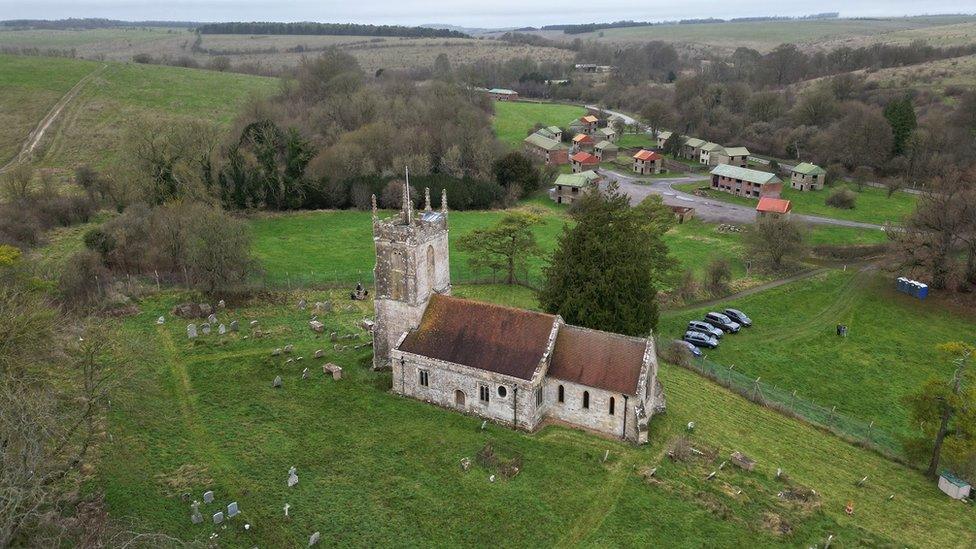Dementia-friendly ward opens in £14m new build
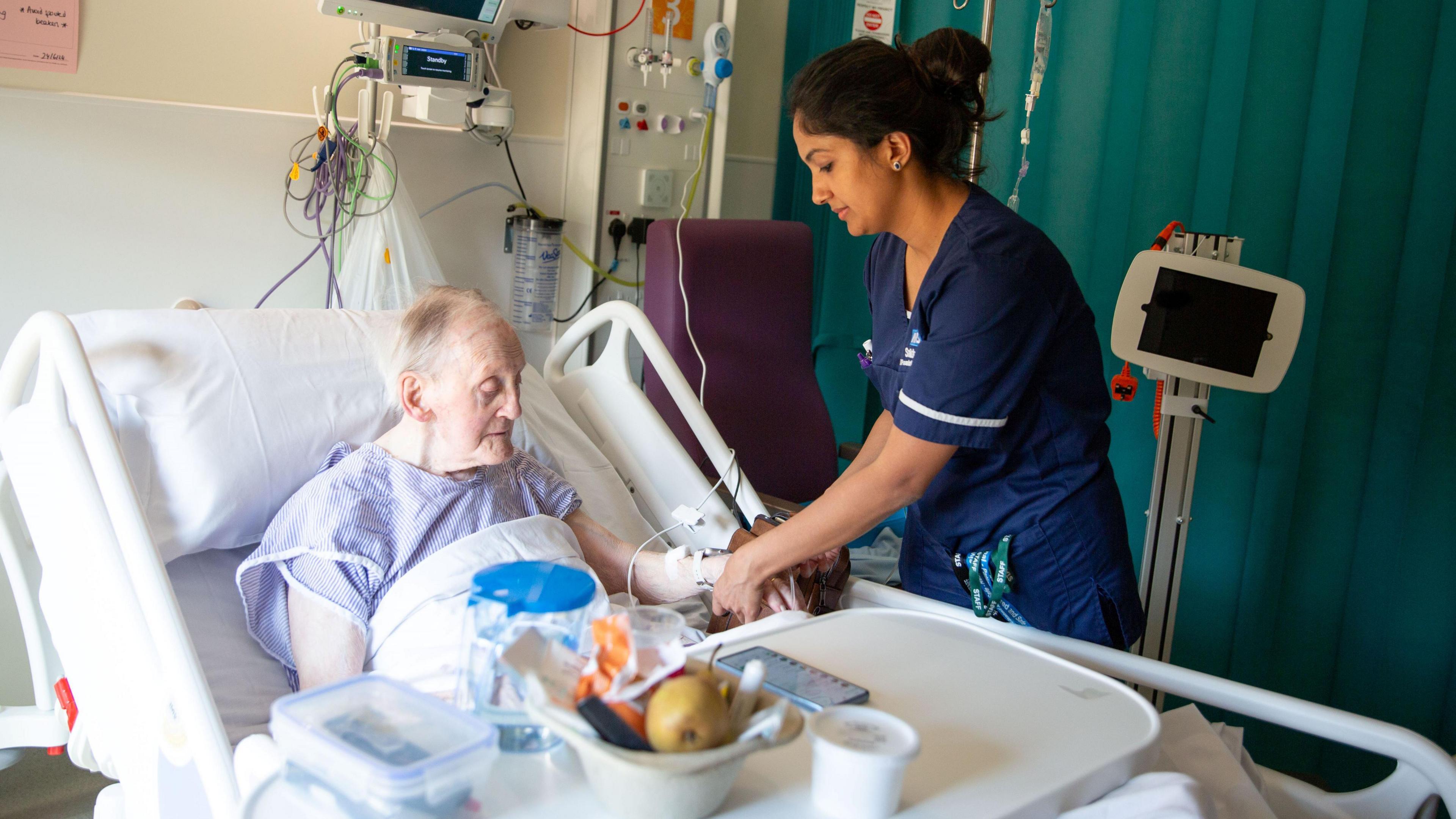
The new ward has started taking patients
- Published
A new dementia-friendly ward for elderly patients has opened, providing 24 more beds for a hospital.
Salisbury District Hospital has started admitting patients into the new Imber Ward, which is for elderly care, with managers hoping it will free up more space in other wards.
It is inside the £14m Elizabeth Building, named in honour of the late Her Majesty Queen Elizabeth II.
The hospital says the new facilities were created with sustainability in mind and the ward has been described by the hospital's interim CEO as a "major milestone".
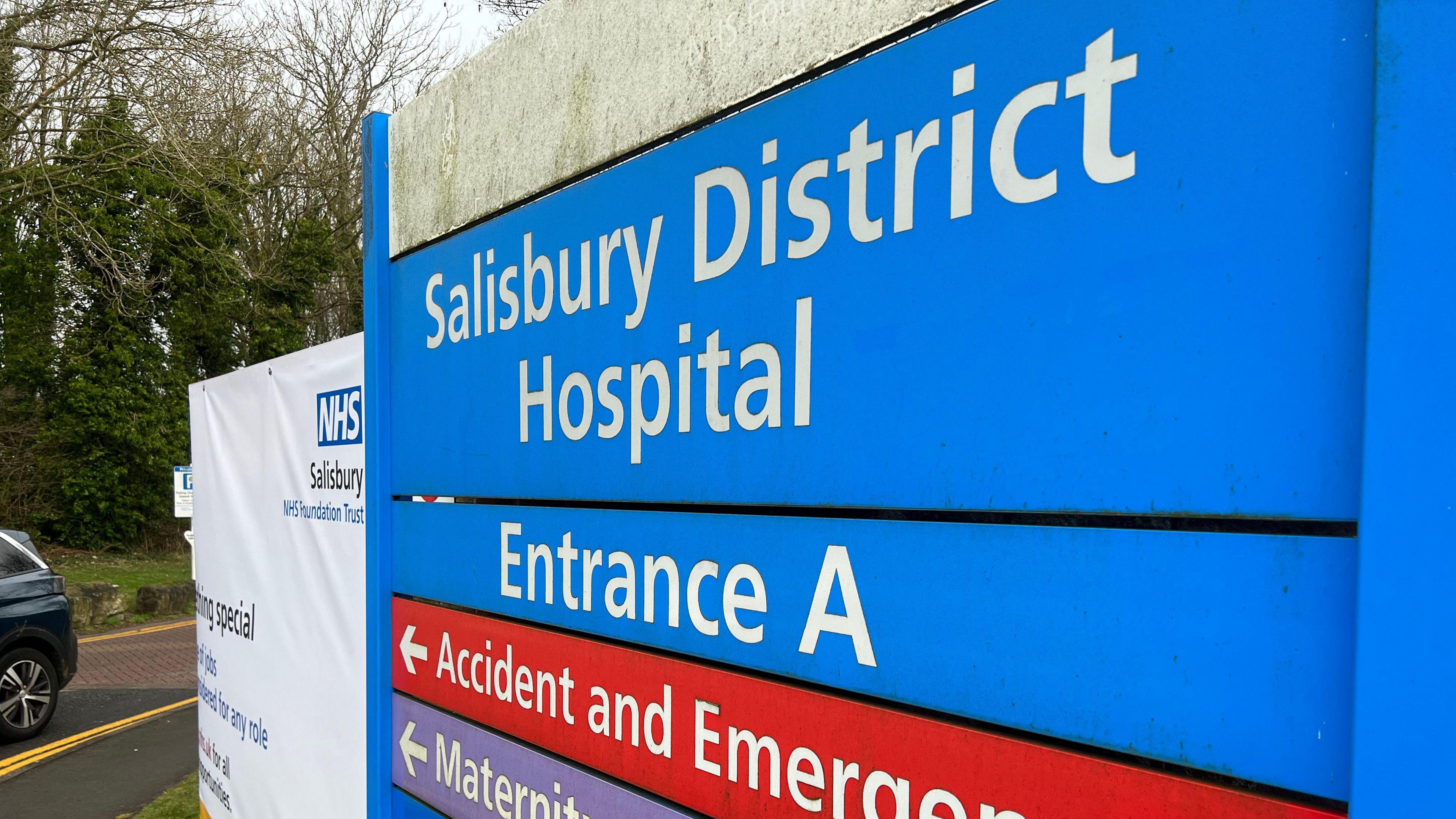
The new ward will free up beds in other parts of the hospital
Lisa Thomas, Salisbury NHS Foundation Trust Interim CEO, said: "We are very pleased to have built and opened our new ward, which provides elderly care in a state-of-the-art modern environment.
"Importantly, the new ward supports the Trust’s elective recovery programme, and marks a major milestone in our efforts to deliver the very best compassionate, effective care to our community, while improving our sustainability."
The building has solar panels, low-carbon concrete, thermal insulation and heat pumps, so there is no fossil fuel use.
The new ward is a mix of four-bed bays and side rooms.
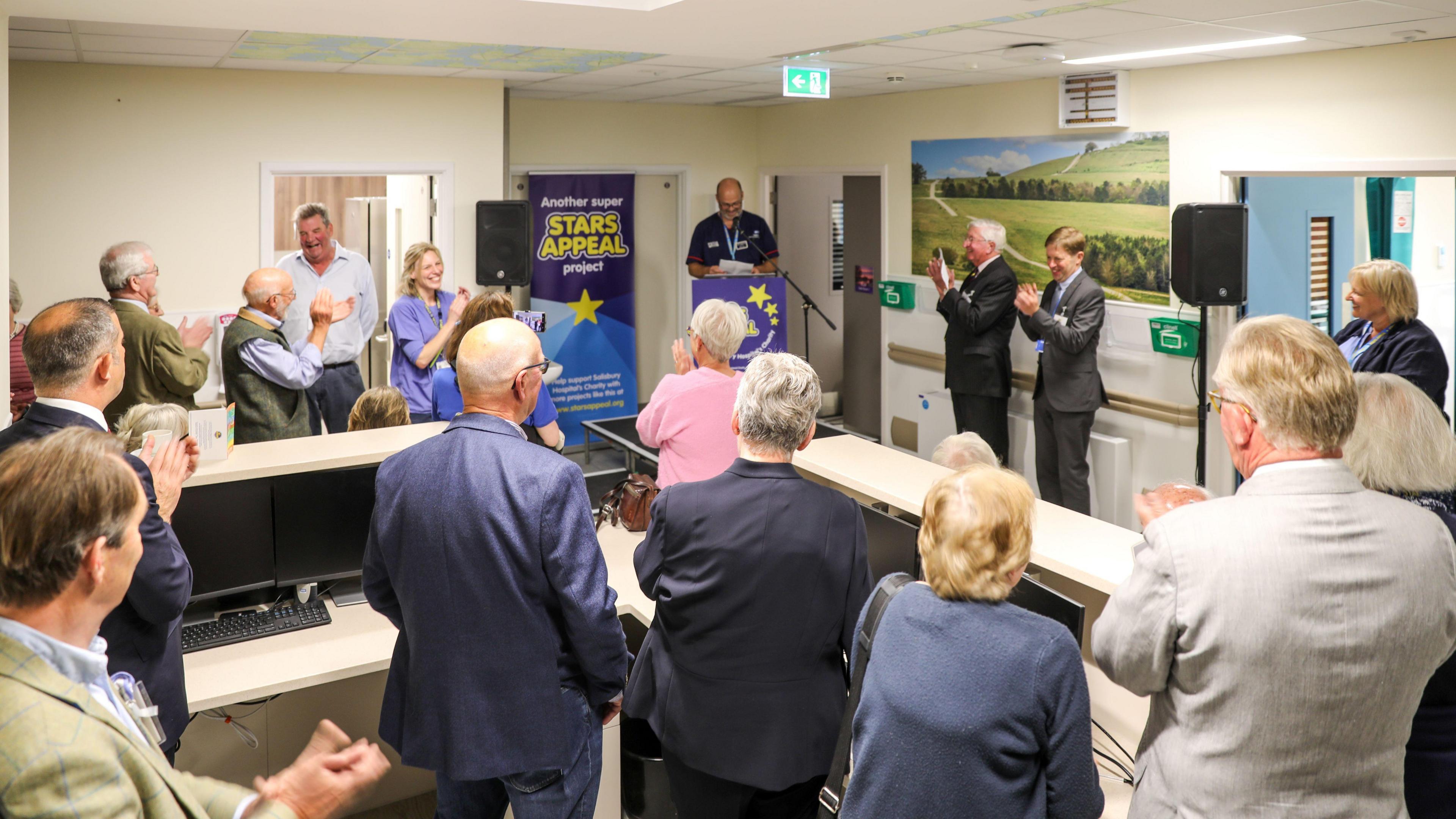
Stars Appeal charity supporters were able to get a private viewing of the new ward
The equipment in the ward had £600,000 put into it by the Stars Appeal, the hospital's charity.
It includes the latest patient monitoring system, furnishings and artwork which helps to create a dementia-friendly space.
The charity said a lot of this money has come from legacies left in wills, with some supporters getting an early preview of the new Imber Ward.
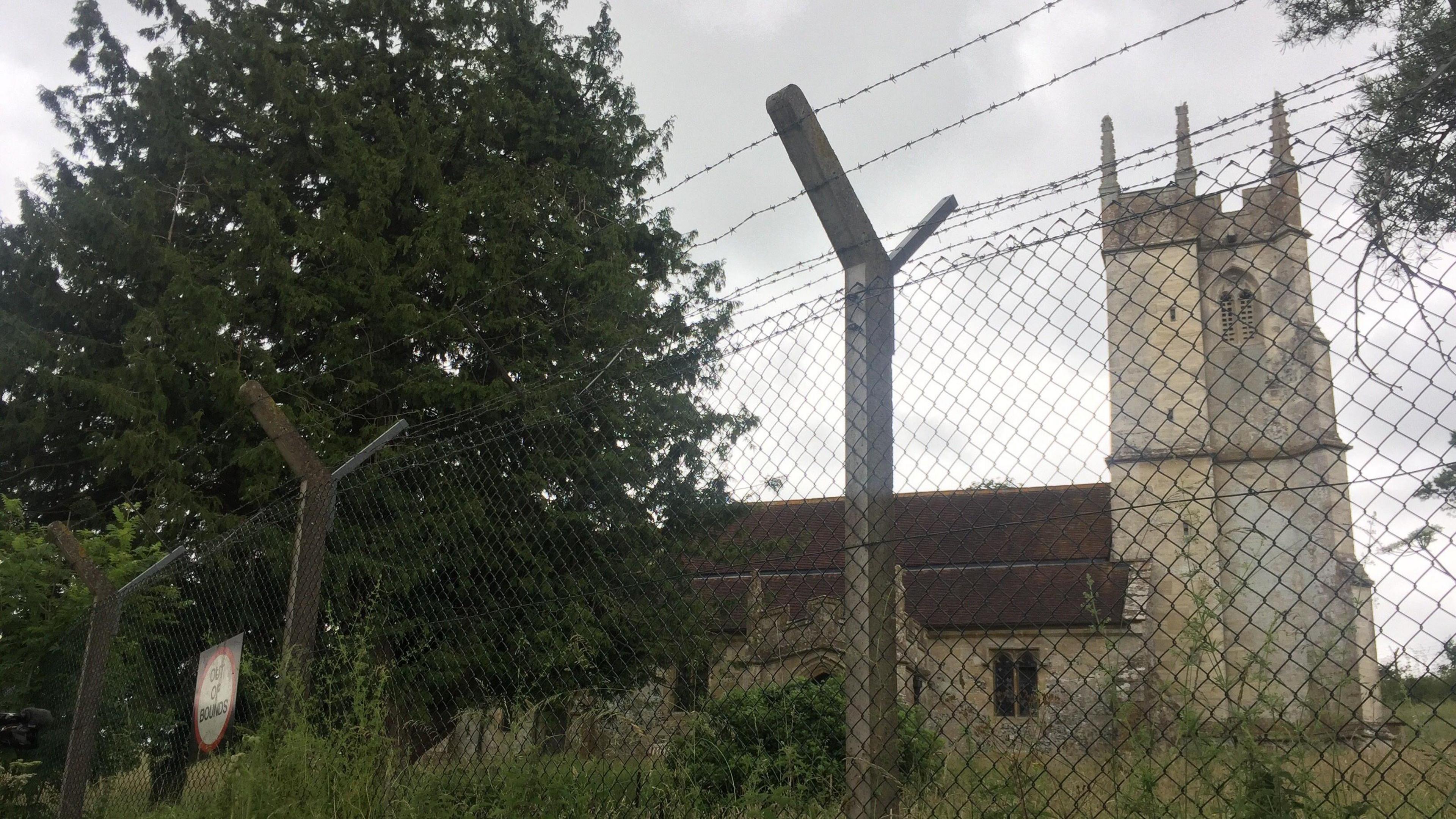
The ward is named after Imber, a village on Salisbury Plain taken over by the military during World War Two
The name comes from the empty Imber village, a place on Salisbury Plain taken over by the military in 1943 for training - it is now still owned by the MoD, with residents never allowed back.
It is the same year the US Army Field Hospital opened on Odstock Road at the site of the current Salisbury District Hospital.
The name was voted for by staff.
Follow BBC Wiltshire on Facebook, external, X, external and Instagram, external. Send your story ideas to us on email or via WhatsApp on 0800 313 4630.
Related topics
- Published8 March 2024
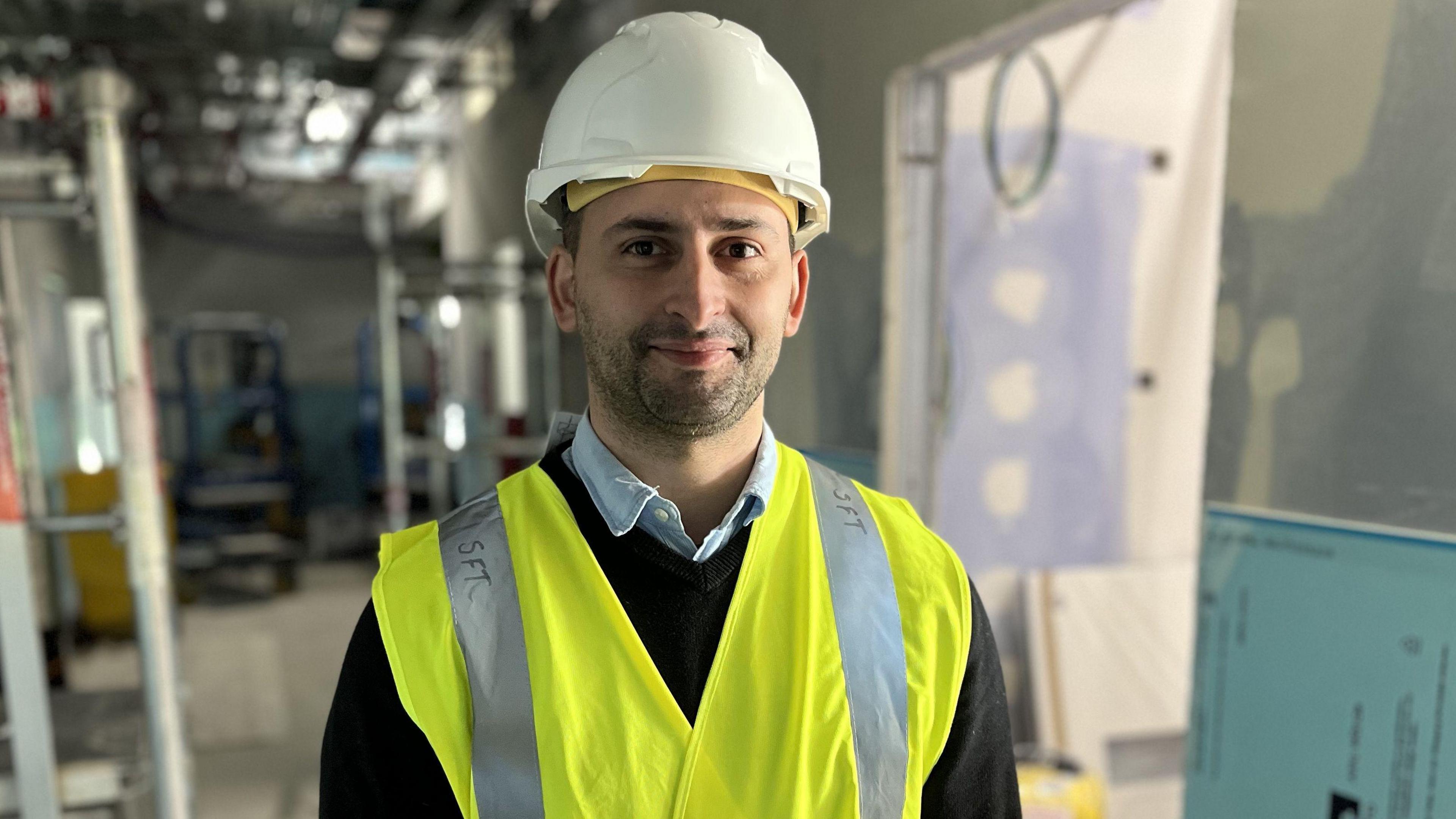
- Published30 December 2023
